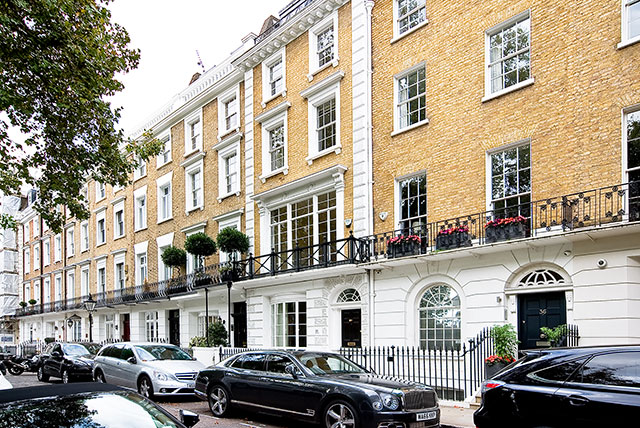By Nic Pejacsevich, director of Nicolas Van Patrick.
One of the measures of a good agent is the number of uncomfortable conversations they are willing to have. Telling the vendor what they want to hear and overvaluing their property may result in instructions but in our experience, it will not turn out well.
At Nicolas Van Patrick, we are having plenty of uncomfortable conversations with vendors right now. The market is price-sensitive and slipping values mean the tempo is sluggish, yet decisions on price adjustments need to be executed swiftly by clients, which is easier said than done! In Knightsbridge, the volume of transactions is low and those which are happening are mainly to European buyers already based in the UK who are purchasing a home, whether that be a house for their growing family as a long-term base or a pied a terre for their own use. Many have been priced out of Chelsea and Notting Hill so are buying in Knightsbridge because they are finding value. Very few are investment buyers.
We find that if you get property on the market at the right level from the get-go, it results in a happier outcome for vendors. Sometimes the price is right from the start, sometimes not, but the key is that the client understands that while we may be prepared to try for the higher price they desire, we maintain that a lower price is the right one. This sets the correct tone for the relationship, making it easier to go back and reduce the price should it not sell at that higher level.
Part of the problem is that prime central London is made up of micro pockets or markets, with Notting Hill very different to Marylebone, Knightsbridge to Kensington etc. Available data on pricing is often much more general and doesn’t drill down enough; for example, even within an area, Montpelier Square is very different to say Chelsea Square. This is where an experienced boutique agent adds value, as long as the vendor is prepared to listen and take advice. In 2014, ultra-high-net-worth individuals gravitated towards London but that is no longer necessarily the case as there are other options with less onerous taxation. There is plenty of cash ready to pounce on the right opportunity, but by this we mean ‘best in class’, which is few and far between.
In a tricky market, the worst advice you can give a vendor is to price high. There is a strong chance they will end up chasing the market down, achieving less than they would have done if they had priced correctly at the outset. Vendors must consider whether to adjust their price now to a level that they may well be uncomfortable with but means they end up transacting or pull out and return at a later date. If the market perceives the price to be fair, buyers will come out and bid; if they think it’s considerably overpriced, they won’t dare make any sort of offer as they judge the vendor to be out of touch with reality. We find buyers prefer to engage with a serious seller who is priced more realistically from the outset.
Of course, we want to get the best price for vendors but we are sober about how this is achieved given market conditions. On one hand, we are delighted to have a good level of decent stock, but it is indicative of the market we are in, with vendors trying to sell before the tax situation potentially worsens should a Labour government be elected in 18 months’ time. For those concerned about this, the time to do something is now. The market will pause as we get closer, so if you are somewhat bearish about a Labour government and what it might entail, our advice would be to prepare for those difficult conversations with your agent and take action now.




